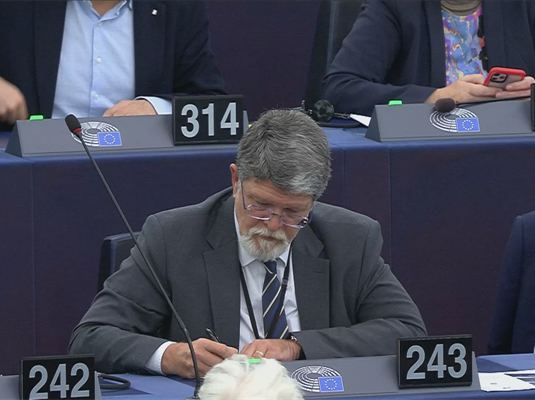Picula expressed regret, stating he had hoped to start his final speech on the Montenegro Progress Report with congratulations to Podgorica for concluding the long, demanding, and exhaustive membership negotiations and celebrating the closing of all negotiating chapters: "Unfortunately, the actual situation, as it is today, largely contradicts my, and not only my, expectations. Montenegro has indeed opened all negotiating chapters, but none of them have been closed in the last six years."
Formally, it still leads the process of European policy enlargement. In practice, EU enlargement has gained new political relevance after the Russian aggression on Ukraine, the list of candidates has expanded, but almost all other countries have progressed compared to their previous positions while Montenegro missed its opportunities.
The European Parliament, in its adopted Report, notes that the political situation in Montenegro is continuously burdened by blockades, with the political scene predominantly dominated by internal conflicts and political turbulence. Support for progress towards membership often remained only in formal declarations, while some elected political representatives were spokespersons for foreign interference policies.
The European Parliament also welcomed the results of all elections held in Montenegro in the meantime, respecting the legitimacy of all elected officials entrusted by the citizens of Montenegro.
Likewise, the EP respects the will of almost 80 percent of Montenegrin citizens who unequivocally support Montenegro's accession to the European Union. This data should oblige all political actors in Montenegro and could serve as a cohesive factor in a highly polarized society, Picula said.
He also highlights the role of the Serbian Orthodox Church, which, unfortunately, is an active political factor in Montenegro, often used as a means of foreign interference in domestic political processes.
The Report also duly registers and positively evaluates Montenegro's full alignment with the EU's common foreign policy, including sanctions against Russia.
The appointment of three new Constitutional Court judges as a step towards resolving the constitutional crisis is welcomed, and the Report notes improvements in preventing corruption and a positive trend in the work of the Agency for the Prevention of Corruption.
The adoption of the new public administration reform strategy for the period 2022-2026 is positively evaluated, but the lack of progress in its implementation is also noted.
Furthermore, the deputies welcome the introduction of stricter penalties for attacks and threats against journalists and the establishment of an ad hoc committee to monitor violence against journalists.
The signing of an updated agreement between the EU and Montenegro on operational cooperation in border management with the European Border and Coast Guard Agency (Frontex) is also noted, and the decision to terminate the citizenship by investment program is particularly welcomed.
All these positive steps would mean much more if they were paralleled by efforts to address systemic problems, especially those identified in the benchmarks of Chapters 23 and 24, which relate to the rule of law and judiciary, the Report states.
Picula also commented on the issue of conducting the population census, another important factor in ensuring stability in Montenegro: "To dispel any doubts about the population census, we are not talking about its boycott, but supporting its implementation as a contribution to the developmental policy of every country. What we propose is that the census should not be used as another political tool for further polarization of society. Removing political blockades would be a constructive precondition for its holding in an open and transparent manner, without any political interference."
In conclusion, he said: "I hope that Montenegro in the next term will develop all its capacities and succeed in overcoming internal divisions in practice, not just declaratively, and truly commit to achieving the set goals. Not for the EU but primarily for the citizens of Montenegro."


